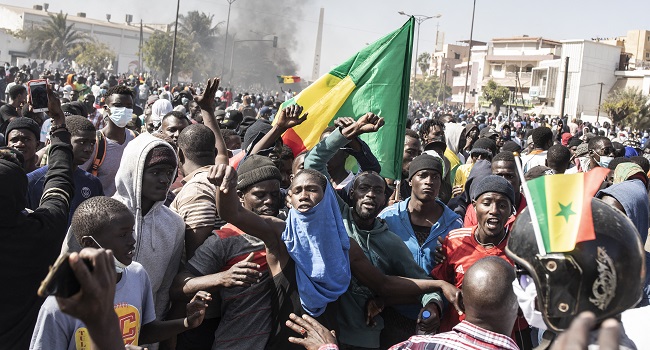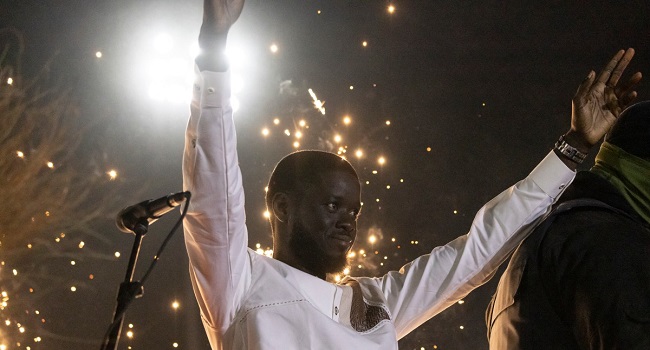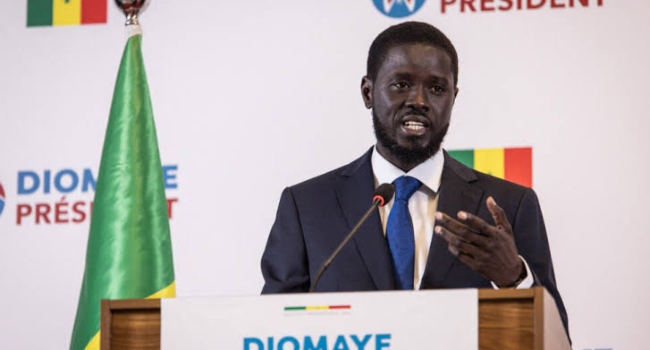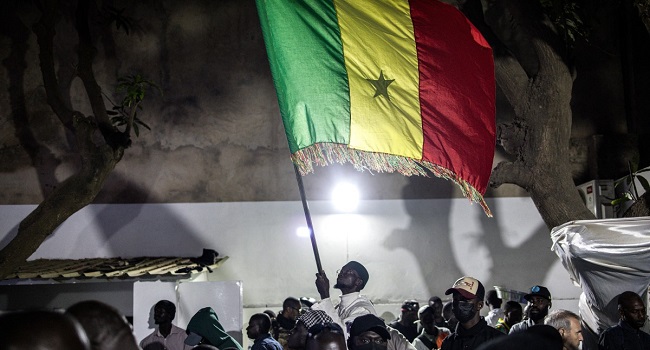
Senegal has been rocked by its worst protests in years following the detention of the country’s most popular opposition leader.
The violence has left at least five dead in a country seen as one of the most stable in West Africa.
Here we explain what prompted the unrest, which saw thousands of young people take to the streets, and who are the main actors in the crisis.
Rape accusation
In early February, the press report that Adji Sarr, a 20-year-old masseuse at a beauty salon, has accused opposition leader Ousmane Sonko, head of the Pastef-Les Patriotes party, of rape and death threats.
Sonko, who rose to prominence during the 2019 presidential election, denies the charges, saying they are politically motivated and a bid to prevent him from standing in the 2024 ballot.
The 46-year-old lawmaker is ordered to make a court appearance on March 3 for questioning but on his way to the courthouse clashes erupt and he is arrested on charges of disturbing public order.
Why the unrest
Sonko’s supporters take to the streets following his detention, claiming the case has been orchestrated by President Macky Sall.
Fierce clashes between the protesters and police leave at least five dead.
Many French retail shops and businesses, including Auchan, Total, and Eiffage, which are seen as a symbol of government corruption and greed, are also torched.
Armoured vehicles are deployed in the capital Dakar and many schools and businesses are shut down.
A judge orders Sonko’s release on Monday although he is formally charged with rape and the police investigation into the case continues.
Country’s malaise
Many Senegalese and experts say Sonko’s arrest and the subsequent unrest reflect a deep-seated malaise in a country heralded as a beacon of stability.
Many accuse Sall of cracking down on liberties and say his rule has benefited the country’s elite — made up mainly of those close to him — at a time when more and more Senegalese are struggling to survive, especially in light of the curfew and economic downturn caused by the Covid pandemic.
The last time violence erupted on this scale was in the 2012 presidential elections, in which between six and 15 people died.
Main actors
Macky Sall, 59, was first elected in 2012 and was re-elected in 2019. He has stayed mum on the possibility of running for a third term in 2024 despite a two-term limit imposed by a 2016 constitutional amendment.
Sall is respected on the international scene. But the case against Sonko has been likened to trouble faced by other perceived opponents of the president — Karim Wade and Khalifa Sall.
Wade is the son of former President Abdoulaye Wade while Sall was the mayor of Dakar.
Both were charged with corruption and as such could not challenge Sall in the 2019 election.
Sonko, who is considered a key opponent to Sall, now faces similar judicial problems. He must also answer to critics who say the unrest that has roiled the country has done more harm than good.

What now?
It is unclear what will happen now that Sonko has been freed from custody.
He called on Monday for “much larger” protests but urged non-violence.
Senegal’s opposition suspended calls for further mass protests on Tuesday and Wednesday and calm returned to the capital, although military vehicles remained in position in the government quarter.
Sall for his part has also called for calm, appealing in an address to the nation late Monday for protesters to avoid confrontation.
The courts should be left to do their job “in all independence”, he added, also announcing an easing of the curfews in place in two regions, including Dakar.




